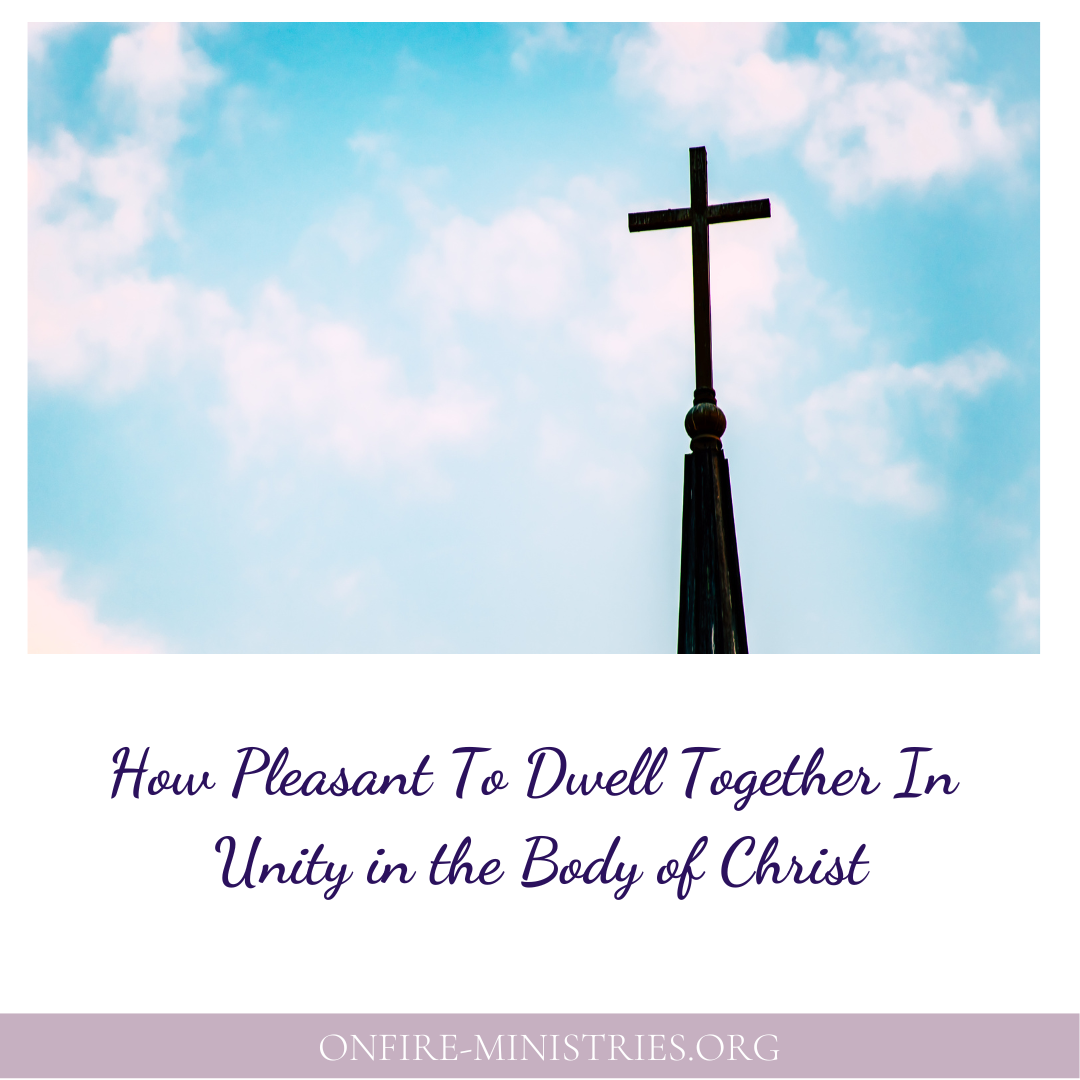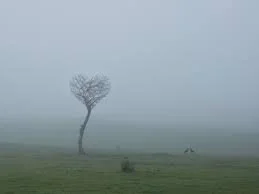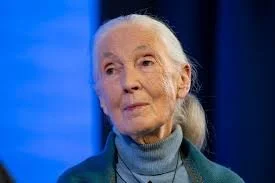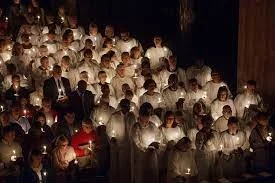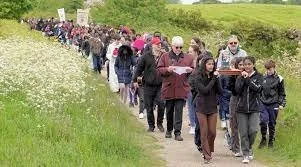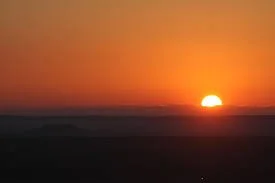“You give them something to eat.”Luke 9:13
“…the feeding of others, whether it’s spiritual or physical food, is part of our core vocation as followers of Christ.”
This article’s title is from the story of Jesus feeding over five thousand people with just five loaves and two fish. The telling of that story is remarkably consistent between Luke’s, Mark’s, and Matthew’s gospels. All three have a large crowd gathered to hear Jesus (4000-5000 men plus women and children). All three have the disciples saying that Jesus should send the crowd away because they don’t have food to feed them. And all three have Jesus saying, “You give them something to eat.”
Jesus then took the little they had - five loaves and two fish - and fed the crowd, with plenty left over. In this story, Jesus is calling the disciples to feed people who are hungry and in need, even when it seems like there’s not enough to go around.
For us who share in communion each week, the feeding of others, whether it’s spiritual or physical food, is part of our core vocation as followers of Christ. But it’s hard to focus on our spiritual hunger if our physical hunger - and the fear it can bring - gnaws at us.
Right now, our country is facing a hunger crisis. As I write this, Congress is still deadlocked on the budget and health care, and the federal government is shut down. As a result, regular funding for SNAP (Supplemental Nutrition Assistance Program, formerly known as Food Stamps) has been shut down as well.
Starting November 1, over 40 million people in our country will receive reduced food assistance or no food assistance at all. And the Administration has chosen to not spend the over-$5-billion it has in reserve for the SNAP program. This decision will cause hunger to greatly increase across our country in the coming weeks.
Who are the people that receive SNAP funds?
● In Michigan, 492,225 children benefit from SNAP funding.
● In Berrien County, 23,000 residents qualify for SNAP, or 15%
of the county’s population.
● Households receiving SNAP include those with children
(43%), with older adults (36%), and with a person with a
disability (51%).
● Over three-fourths of all households receiving SNAP have
someone earning an income.
Right now, food pantries and feeding programs across Berrien County are trying to figure out how they can help fill this huge gap in food access caused by the federal government shutdown and refusal to use its reserve fund to keep SNAP going. There is no way to completely cover that gap, but they are trying.
How can we help? Four things come to mind:
We can donate food. Please consider bringing food donations to Pilgrim as part of this month’s food drive (see the list of possible items to donate at the end of this article). All donations will go to St. Augustine’s Food Pantry in Benton Harbor. At the end of October, they served over 800 people in one evening, a record number for them.
We can advocate for SNAP funding to be restored. We can contact the Administration, as well as our Representative and Senators, asking them to use the SNAP reserve funds to feed people in need, to negotiate an end to the shutdown, and to restore regular SNAP funding. Here is a link to more advocacy information from the Christian organization, Bread for the World: https://bit.ly/42YqmZD
We can volunteer. I was on a call this week with food pantries around the county, as they tried to coordinate with each other to address the coming crisis in food insecurity. A common theme among all of them was the need for volunteers. Let me know if you’re interested, and I can get you connected.
We can pray and learn more about hunger in scripture and in our church’s tradition. Bread for the World also has some great prayer resources at its website: https://www.bread.org/pray/. And if you’d like to learn more about what our scriptures and tradition have to say about feeding people who are hungry, please talk to me, and I can put you in touch with some other resources.
We have no higher calling than to follow the lead of Jesus, who shared a meal with his disciples. We continue to imitate that meal each week in the Lord’s Supper. Feeding people - physically and spiritually - is what we’re called to do. Especially in times like these, Jesus still says to us, “You give them something to eat.”
Items to bring to Pilgrim as a donation for St. Augustine’s Pantry beginning Sunday, November 2 through Sunday, November 23:
● Any non-perishable food
○ canned vegetables or fruit, soups, pasta sauces, etc.
○ rice, pasta, boxed potatoes, etc.
● Toiletries like…
○ single toothbrushes or toothpaste
○ deodorant and bars of soap
Coming Together: Two in One
We are stronger together
It’s been a joy to see how well our two churches - Pilgrim and Riverview - have come together as one congregation. That’s been a real sign of the Spirit’s work in our community, and for that I’m grateful.
As part of that “coming together” is the consideration of whether or not we want to be a dual-denomination congregation, with a foot in each of our denominations - the United Church of Christ and the Christian Church/Disciples of Christ. There are actually a number of congregations in the U.S. with dual-denomination status (and some with three or more denominations, like Methodist or Episcopalian as well!). Let me know if you’re curious to see the websites of some of those churches; I’d be happy to get them to you.
What could that mean for us? Well, that’s something we’ll be exploring in the next few months, to see if dual-denomination status would be a good fit for us as well.
To help with that consideration, I’ll be sharing information about our two denominations in our newsletter, as well as during sermons, weekly updates, this blog, etc.
I’ll be sharing more information as we go along, but always feel free to ask me questions. If I don’t have the answer, I’ll find out where we can get it. And please continue to pray that we grow as one church in Jesus… that is the blessing that God has provided for us, and a blessing for which, as I said, I am very grateful. - Pastor Dan Robinson
Change, Compassion and the Body of Christ
Do not remember the former things, or consider the things of old. I am about to do a new thing; now it springs forth, do you not perceive it?” - Isaiah 43:18-19
Lots of new things are happening at Pilgrim! We’re grateful for the merger with Riverview Park Christian Church, the coming together of our two congregations, and the blessing of a renewed spirit that comes when we gather with even more members of the Body of Christ.
We are fed by our decision to have communion every week, experiencing the healing and inspiration that comes from sharing the bread and the cup, the body and blood of Christ each Sunday.
We are hopeful for the ongoing conversation and connection with Zion UCC, as we explore what a shared future might look like.
That’s a lot! And while change can be good, and a blessing from God, it can also be a little disorienting and challenging. We all need to allow space for both rejoicing in the new things God is doing in our church, but also getting used to new realities, new people, and new ways of being a community of Jesus’ disciples.
One blessing to rejoice in is that our two congregations coming together gives an example of uniting the Body of Christ. Both Pilgrim and Riverview Park come from denominations (the United Church of Christ and Disciples of Christ, respectively) that are committed to Christian unity. Our merger is a real-life application of that commitment.
So, as we unite our congregations, some things will work well right away, and other things will take a little longer to figure out. But in our faithfulness to God and each other, we will grow in ways we never expected and discover the Love of God in places and people that will surprise us.
In the coming weeks and months together, let us be grateful for all that God is doing, this “new thing” that “springs forth” from Divine Love. And let us be patient with each other as we figure out how we practically live into this new reality. That love, patience, and discovery is yet another example of being the Body of Christ in the world, an example for which I am deeply grateful.
“…In the coming weeks and months together, let us be grateful for all that God is doing, this “new thing” that springs forth from Divine Love. And let us be patient with each other as we figure out how we practically live into this new reality.”
Do not remember the former things, or consider the things of old. I am about to do a new thing; now it springs forth, do you not perceive it?” - Isaiah 43:18-19
Lots of new things are happening at Pilgrim! We’re grateful for the merger with Riverview Park Christian Church, the coming together of our two congregations, and the blessing of a renewed spirit that comes when we gather with even more members of the Body of Christ.
We are fed by our decision to have communion every week, experiencing the healing and inspiration that comes from sharing the bread and the cup, the body and blood of Christ each Sunday.
We are hopeful for the ongoing conversation and connection with Zion UCC, as we explore what a shared future might look like.
That’s a lot! And while change can be good, and a blessing from God, it can also be a little disorienting and challenging. We all need to allow space for both rejoicing in the new things God is doing in our church, but also getting used to new realities, new people, and new ways of being a community of Jesus’ disciples.
One blessing to rejoice in is that our two congregations coming together gives an example of uniting the Body of Christ. Both Pilgrim and Riverview Park come from denominations (the United Church of Christ and Disciples of Christ, respectively) that are committed to Christian unity. Our merger is a real-life application of that commitment.
So, as we unite our congregations, some things will work well right away, and other things will take a little longer to figure out. But in our faithfulness to God and each other, we will grow in ways we never expected and discover the Love of God in places and people that will surprise us.
In the coming weeks and months together, let us be grateful for all that God is doing, this “new thing” that “springs forth” from Divine Love. And let us be patient with each other as we figure out how we practically live into this new reality. That love, patience, and discovery is yet another example of being the Body of Christ in the world, an example for which I am deeply grateful.
The Gift of Peace
“If we truly want peace, we have to work for the Shalom of all people, the healing, wholeness, and flourishing of everyone, even those we think are wrong or dangerous”
This Fourth of July, we’re celebrating the 249th birthday of our country. That makes us one of the oldest modern democracies in the world (although some historians suggest the Native American Six Nations confederacy is the world’s oldest democracy, which goes back eight centuries).
249 years is worth celebrating! So what kind of gift do you think a 249-year-old would like? I know anniversaries have “symbols,” like paper for the first anniversary and gold for the 50th. If I could pick out a gift for our country’s 249th birthday, I would pick Peace.
Now, “Peace” is an interesting word. It can mean so many different things to different people. It might mean the absence of conflict between family members or between countries. For others, it might be something that flows from making sure people are treated justly and with dignity. For many of us, it might just mean a moment of calm and quiet in the middle of a crazy day! Not only do we have conflict in the world, we often can’t even agree on what true peace is! So, what does “peace” mean to you?
Jesus saw that we have trouble with understanding peace. In fact, he wept over this in Luke’s gospel. Jesus cried out as he approached the city of Jerusalem (whose name means “City of Peace”), saying to the people of Jerusalem, “If you, even you, had only recognized on this day the things that make for peace!” (16:42)
In the Jewish scriptures (which were the scriptures of Jesus and his time), the word for peace was “shalom,” which means more than just an absence of conflict. It means flourishing and wholeness, not just for the individual person but for the entire community. It means more than just “live and let live.” Instead, peace calls us to reach out and work for the well-being of all God’s people.
So, how do we get to that wholeness, flourishing, and well-being? Or more to Jesus’ point, what are the things that make for peace?
There are many things that make for peace, more than could be covered in this one column. But there is one in particular that seemed essential to Jesus, yet incredibly hard for those of us who follow his teachings and life: Love your enemies.
This idea of loving and caring for one’s enemies comes up repeatedly in the Christian scriptures. In Luke 6:27, Jesus says, “Love your enemies, do good to those who hate you.” And those words are echoed in Matthew 5:44 and Romans 12:14.
Now, that’s a tough one, because it seems like our world is chock-full of enemies. It could mean our neighbor who lets their trash blow into our backyard. In our country, it might be people who think differently from us on politics, religion, the economy, and so on. Or it could be people who come from a different country than us or have a different color of skin, or perhaps are poorer than us.
Around the globe, there’s no shortage of conflict and war, all filled with the “other,” people who are the enemy to folks on “the other side.” You can’t have a war - whether it’s in the Middle East, Ukraine and Russia, or somewhere else - if you don’t have an enemy.
Sometimes it feels like it’s worse now more than ever. But I suppose it feels like that to every generation. Certainly it can’t be as bad, at least in this country, as when we had our own Civil War, right?... Right?!
And yet, in the midst of all that morass and conflict and mess, Jesus said, “Love your enemies...” And even more, Jesus says we actually have to show that we love them by doing “good to those who hate you.” To set an example, Jesus forgave those who called for his execution and those who crucified him on the cross.
Loving your enemy seems so radical and so counter-intuitive. We all want peace, of course, but to have peace we have to get rid of our enemies. There’s a push now to do away with our enemies, sometimes expressed in the phrase, “Peace through strength,” or seen in violent acts against neighbors, elected officials of a different party, or immigrants to this country.
But strength, particularly military strength and violence, never really gets rid of an enemy. It may stop the conflict for a while, but it doesn’t bring true peace. The things that make for peace, Jesus tells us, are our efforts to stop seeing other people as an enemy. We need to transform our hearts and the relationship we have with them and to see them as equal children of God, whether they are black, brown or white-skinned; Jews, Christians, or Muslims; people of the United States, Israel, Iran, Ukraine, or Russia.
Is that easy? Heck, no! Is it practical? Absolutely!
If we truly want peace, we have to work for the Shalom of all people, the healing, wholeness, and flourishing of everyone, even those we think are wrong or dangerous. Only that will practically bring about the peace that we all seek.
That’s a tough job, especially in a time when our country and our world are divided and conflict seems to be everywhere. But that’s the job description of the followers of Jesus - to love our enemies - for that is the thing that truly makes for peace.
In John 14:27, Jesus says, “Peace I leave with you; my peace I give to you.” That is the gift that Jesus gives us, which we can pass on to others, and which might make a nice gift for our country’s 250th birthday next year, too!
A New Pentecost, a New Future
“Two are better than one, because they have a good reward for their toil. For if they fall, one will lift up the other… and though one might prevail against another, two will withstand one. A threefold cord is not easily broken.” - Ecclesiastes 4:9-10, 12
The passage from Ecclesiastes (see above) came up at the recent gathering of people in leadership roles from Riverview Park, Pilgrim, and Zion churches. We gathered for a soup supper on a Thursday evening in May to discuss something that’s been on the mind of a lot of people, I think… whether our three churches can discover a shared future together.
The person who quoted this passage was making a comment on how good it might be for our three congregations to be connected in some way. What that connection might look like is for all of us to discover together, but the general point is that we might be stronger together.
I’ve been thinking about this idea of the three churches coming together quite a bit, and it seems especially appropriate now,
because we’re coming up to the celebration of Pentecost on June 8. This day marks the end of the Easter season and celebrates the coming of the Holy Spirit to the early followers of Jesus. On that day, we’ll hear again the story as it’s told in Acts 2, when all the disciples were gathered in the upper room and “were filled with the Holy Spirit.” (vs. 4)
Some people consider the coming of the Holy Spirit on that first Pentecost as the “birthday of the church.” When they were filled with the Spirit, those early followers of Jesus had no idea where they would be led, how other people would react to them, or what their community would look like in the years ahead. All they knew is that Jesus’ life, death, and resurrection had shown them the power of God’s love and justice, and their mission was to share that love and justice with all they met.
So, perhaps we are now at our own “Pentecost,” when the Holy Spirit is calling us to a new path in our mission to share God’s love and justice. We might not know yet where it will lead, but we can be confident that God will travel with us, that Jesus’ ministry and resurrection give us the example we need for that journey, and that the Holy Spirit will guide us.
In the coming months, we will consider a shared future between our three congregations, whether that be a once-a-year shared worship, some kind of consolidation between the three churches, or something in between. As we consider all this, the most important question is, “What form of church will best serve our mission of helping build the Reign of God?”
I continue to believe that the Holy Spirit is leading us to a future where all three of our churches are connected in some way. That connection may very well give us the best opportunity to serve our mission. As the passage from Ecclesiastes says, the mission of a three-strand cord can not be easily broken.
May God continue to bless and uphold us as we together enter into this new future, this new Pentecost, this new birthday of our churches.
Peace in Christ,
Pastor Dan Robinson
Hospitality for All
Benedict of Nursia wrote a rule for living that has been followed by monastic communities and average Christians for centuries.*
“All guests who present themselves are to be received as Christ, who said, ‘I was a stranger and you welcomed me.”(Matthew 25:35)
* Benedict of Nursia was a monk who lived during the 5th and 6th centuries in the lands of the Roman Empire.
Given all that’s happening in our country around immigration, I thought I’d share this column I wrote that was originally published in the Herald-Palladium in September 2024.
I’ve lived in 23 different places. I know... that sounds like a lot! Two years ago, my wife and I moved to Berrien County, and we hope to make this our community for the rest of our lives, but it’s been quite a journey to get to this point.
Some of those places where I’ve lived were in different states, a few of them were in the same town, but all of them involved packing up, moving, and settling into a new spot. Moving, migrating, journeying, whatever you want to call it, takes a lot of physical and emotional energy.
We’re not the only ones that are on the move, though. According to Steinway Moving and Storage, people in this country move on average almost 12 times during their lives. With all that moving comes a lot of new faces and places.
From my own experience, experiencing hospitality in a new location makes a huge difference. When we moved into our house last year in Berrien Springs, our neighbors across the street left a small gift and note to welcome us to the neighborhood. That gesture let us know that we had found a place we could call home.
Hospitality has been part of the Christian way of living since the days of Jesus and the early Christian communities. Benedict of Nursia was a monk who lived during the 5th and 6th centuries in the lands of the Roman Empire, and he wrote a rule for living that has been followed by monastic communities and average Christians for centuries.
In his rule, Benedict wrote, “All guests who present themselves are to be received as Christ, who said, ‘I was a stranger and you welcomed me.’ (Matthew 25:35)” All of us who are on the move from one place to another are strangers to our new community, and yet we all are to be received as Jesus himself.
Benedict also wrote, “Great care and concern is to be shown in receiving poor people and pilgrims because in them more particularly Christ is received.” Those of us who are struggling or seeking God and a better life reflect the person of Jesus even more, so we, again, are to be welcomed as if we are Jesus himself.
This kind of hospitality was no small task in the days of Benedict and his monastery. The Roman Empire at the time was constantly at war, and those traveling through his part of the world could easily have been people intent on violence. Yet, they were welcomed by the Christian community of the monastery.
What does this call to a spirit of hospitality mean for Christians today? It means welcoming those who are moving into our community, whether they are from Cass County, Chicago, Mexico or Africa.
Welcoming and hospitality can take on different forms, from a small gift left on a front porch to help with housing and those things we need to set up a home. But whatever we do, those of us who are Christians are called to treat the person new to our community as Jesus himself.
Beyond what each of us does to welcome “the stranger,” we need to create a culture of hospitality, where society functions in a welcoming way. Creating such a culture requires leadership that models and shows the path towards hospitality.
Benedict also wrote in his rule that, “The prioress or abbot shall pour water on the hands of the guests, and with the entire community shall wash their feet.” The leaders of the monastery - the prioress or abbot - were expected to show humble service to the guests as if they were Jesus, modeling for the rest of the monastery residents how to show hospitality.
Many people argue that immigrants and those traveling to our country pose a danger, maybe even as the travelers did during the time of Benedict. Yet, immigrants do not commit crimes at any higher rate than people who were born in this country, according to the Brennan Center for Justice. At the same time, many studies show that, overall, immigrants strengthen our economy, providing workers that employers need and promoting innovation and entrepreneurship.
Make no mistake, then... hospitality is not easy. Whether it’s someone retiring in our county from Chicago, or someone immigrating here from South America, a changing population means a changing community, with new stresses as well as opportunities.
Those of us who are Christians, though, are called to treat our newly arrived brothers and sisters as Jesus in our individual actions as well as in how we create our culture and society.
As Jesus said in Matthew 25:34,35, hospitality models in this life what Jesus tells us awaits us in the life to come: “Come, you who are blessed by my Father, inherit the kingdom prepared for you from the foundation of the world ... for I was a stranger and you welcomed me."
Peace in Christ,
Pastor Dan Robinson
Our Holy Week Journey
“The power in Jesus’ story is that it is our story as well”
“… We must always remember those people who are experiencing their own Good Friday moments in their lives - moments of heartache from loneliness, of pain from discrimination, of suffering from poverty, or even of death from war and violence”
Life is a journey… that’s kind of cliché, right? But it’s a cliché because it fits our experience so well, I think. We travel from one day to the next, from one year to the next, moving through time, and sometimes even moving through space, from one place to the next.
We’re reading Luke’s gospel during worship this year, and in this version of Jesus’ story, he’s a man on the move, particularly in the latter half of the gospel. He’s making his way to Jerusalem, where he knows what awaits him - the events that we celebrate in Holy Week.
Our Holy Week celebrations and worship are a journey, too. We remember Jesus traveling from the highs of Palm Sunday, to the seeming ordinariness of Maundy Thursday, to the depths of Good Friday, and finally to new life and joy beyond our expectations on Easter Sunday.
That’s quite a journey packed into one week, and it’s quite a story, one that has survived over 2000 years. Why is that? And why do we tell the same story again and again every year?
The power in Jesus’ story is that it is also our story as well. Maybe we haven’t finished the journey yet, but we’ve all had high moments in our lives, like Palm Sunday, when everything and everyone around us seems right.
We’ve all had moments that seem ordinary, like Maundy Thursday, when something as simple as a meal is actually a moment of incredible grace and love, if we’re open to it.
We’ve all experienced moments of struggle, pain, or suffering. In a way our own unique Good Friday experience. Maybe we were wrapped in grief over the death of a loved one. Or perhaps we or someone we love was dealing with a serious medical problem. Or maybe it was just a moment in the middle of the night when our fears and our stresses came crashing down on us.
No, our story and our journey isn’t over. But the final leg of Jesus’ Holy Week journey tells us how ours will end. The depths of Good Friday do not have the final say. Resurrection is not only possible, but it’s a reality. Jesus rose to new and eternal life, and we will as well. God’s love is stronger than anything, even the one thing that seems inevitable… death.
In just a couple weeks or so, we’ll once again be taking the Holy Week journey with Jesus. This year, we’ll have the blessing of traveling not only with our family here at Pilgrim, but also with our brothers and sisters at Riverview Park Christian Church and Zion UCC.
Jesus’ story - his Holy Week journey - is our journey, too. That’s true. But because it is our journey, it is also the journey of our sisters’ and brothers’ in this world. People close to us and people around the world are, as you read this, having their moments of celebration, ordinariness, and suffering.
In particular, we must always remember those people who are experiencing their own Good Friday moments in their lives - moments of heartache from loneliness, of pain from discrimination, of suffering from poverty, or even of death from war and violence.
Jesus gave his life in love, service, and sacrifice so that we all may know new life in this world and in the world to come. As his followers, we also are called to give our lives in love, service, and sacrifice, so that our sisters and brothers who are experiencing Good Friday on their journey can know some measure of healing and new life in the here and now.
May the coming Holy Week be a journey of healing and joy for you. I look forward to seeing you as we make that journey together.
Peace in Christ,
Pastor Dan
Finding Beauty and Healing in that Which is Broken
Kintsugi is the Japanese tradition of pottery that celebrates those places of brokenness. A broken piece of pottery is glued back together, but instead of hiding the cracks, they are celebrated with gold highlights. It is the brokenness and the healing that creates the beauty of the piece.
These days, we and our world can often feel shattered. And many times the pieces don’t feel like they fit back together. But from this brokenness, God can create healing and beauty in our lives. May we have the courage to accept that healing and beauty this Lent, and then share it with all of God’s creation.
Photo rights purchased on Etsy
If you think about it, Christianity is kind of an odd way to live. We base our lives on someone who seemingly failed, who tried to convince the people of his time of God’s love but in the end was killed for trying.
But as we know, it is that very failure, that willingness to die, that did indeed show God’s love to us. Jesus’ faithfulness, even in death, created the space and the reality of the resurrection. God and new life did not triumph in spite of Jesus’ death but BECAUSE of it.
Failure, sin, unfaithfulness, have been a part of our faith story from the garden of Eden until today, and from the looks of things, they will continue to be an integral part of being human.
Lent has historically been a time of renewal for Christians, a time to fast, pray, and give alms (or donations) as a means to prepare ourselves for the celebration of the resurrection. Too often, though, that time of renewal has focused on our failings and our lives of sin that we often can’t seem to overcome, no matter how hard we try.
Don’t get me wrong! We need to do our best to change the ways we are hurting ourselves, other people, and God’s creation. And change is possible. But the path to change doesn’t focus on our sins and all the ways we fail to live up to the people God created us to be.
We need to accept the reality of our failings and to take a different path (the biblical meaning of the word “repent,” to turn away). But that path is not filled with guilt but with love and forgiveness.
This Lent, my hope for all of us is that we discover our brokenness, and the brokenness of the world around us, are actually glimpses of God’s beauty and the means to healing and wholeness.
Jesus’ Mission Statement
“ It’s a pretty good summary of what Jesus is about - spiritual, physical, social, and economic healing, so that all people, no matter who they were or what they had done, could live as a child of God.”
I’m so grateful to God and to all of you for the privilege of serving as Pilgrim’s pastor. Worshiping with you on Sundays and visiting members of our congregation in their homes since last August has been a joy, and I’m excited to see what God will be doing through our community in the coming weeks, months, and years.
Before looking to the future, though, I’ve been reflecting yon these past few months, and one of the many things I’ve appreciated about our congregation has been the practice of saying Pilgrim’s Mission Statement together:
Inspired by Christ, we strive to create a reconciling community where ALL are welcome to seek, worship, and serve as individuals interwoven by God’s love. Our goal of spiritual wholeness encourages:
Open dialogue, Mutual respect, Spiritual quest.
A mission statement focuses our energies, time, efforts, and spirits around the most important goals and priorities of the group or person. I think Jesus had a mission statement, too, and that was the Sunday gospel reading during our Annual Meeting on January 26.
In Luke 4:14-21, Jesus is in the Nazareth synagogue to worship on the sabbath and to start his public ministry. Up until this point, Luke’s story has focused on Jesus’ preparation for his public ministry - his conception and birth, childhood, baptism by his cousin John, and temptation in the desert. After all that preparation, Jesus is now ready to start his public ministry, and the first thing he does is read from the scroll of the prophet Isaiah:
“‘The Spirit of the Lord is upon me
Because he has anointed me to bring good news to the poor.
He has sent me to proclaim release to the captives
And recovery of sight to the blind, to let the oppressed go free,
To proclaim the year of the Lord’s favor.’
...then he began to say to them, ‘Today this scripture has been fulfilled in your hearing.’” (Luke 4:18-19, 21)
Luke actually takes a few different passages from Isaiah and combines them into Jesus’ words. The purpose seems to be to emphasize that the work of Jesus wasn’t just spiritual, it was also material. The poor, release to the captives, letting the oppressed go free are all images of the Jubilee year in the Jewish scriptures.
In the book of Leviticus, chapter 25, the scriptures lay out the Jubilee, which was to happen every 50 years. In that year, according to Leviticus, the land is to lay fallow and not be planted so it can rest. All debts are canceled. Slaves were set free. And everyone could return to their original, ancestral land. A general restoration of the economic and social life of the community was to take place, bringing it back to its original intent as the people and reign of God.
That’s quite a mission statement, isn’t it? Inspirational and powerful, and if you look at the rest of the story that Luke tells, it’s a pretty good summary of what Jesus is about - spiritual, physical, social, and economic healing, so that all people, no matter who they were or what they had done, could live as a child of God.
What would it look like if we were to take up that mission statement from Jesus? How would we live as individuals and as a community if people who are poor, in prison, sick, or suffering injustice saw in us “good news”?
I can’t help but contrast this with the “mission statements” I hear from many of our elected leaders, promising to take away protections for the vulnerable, to deport mass numbers of immigrants from this country, to imprison people who don’t agree with them, and to further elevate and promote those who are already wealthy and powerful.
Dr. Martin Luther King, Jr. said the church must be the “conscience of the state.” That means not only celebrating our nation’s gifts and joys but also critiquing our actions in light of Jesus’ mission statement. Another way of saying this is that the church must be a prophet.
As a prophet, it is not enough for the church to say where we as a people fall short. We must also lift up a vision of where we are headed, one that inspires, gives joy, and paints a vivid, real picture of love and justice. For me, this passage from Luke’s gospel does just that.
In the coming years, we will probably encounter increased threats to the well-being of those of us who already suffer from injustice ... folks on low-incomes, people who are immigrants, those who can’t afford decent health care or health insurance, people of color, members of the LGBTQ+ community... people who are us or are our brothers and sisters.
The Good News in Luke’s passage is that the Spirit of God is with us - just as the Spirit was with Jesus - to guide us, to help us act with love, justice, humility, and peace. May all of us together be about the same mission as Jesus, to be good news for a world struggling with injustice and longing for the love, justice, and peace of God.
Peace in Christ,
Pastor Dan
Loving Extravagantly
“We don't yet see things clearly. We're squinting in a fog, peering through a mist. But it won't be long before the weather clears and the sun shines bright! … until that completeness, we have three things to do: Trust steadily in God, hope unswervingly, and love extravagantly. And the best of the three is love."
-1st Corinthians 13
I was first introduced to the term “loving extravagantly” when I bought a translation of the Bible called The Message, a little over 20 years ago. The last verse of 1st Corinthians 13 in this translation says this: “We don't yet see things clearly. We're squinting in a fog, peering through a mist. But it won't be long before the weather clears and the sun shines bright! We'll see it all then, see it all as clearly as God sees us, knowing God directly just as God knows us! But for right now, until that completeness, we have three things to do: Trust steadily in God, hope unswervingly, and love extravagantly. And the best of the three is love."
Loving extravagantly – what does that look like, sound like, and feel like? Bob Goff in his book Love Does: Discover a Secretly Incredible Life in An Ordinary World, says that love that is a “theory” is warm and mushy and when love puts on hands and feet it can get messy and maybe even risky. When you love with your whole life – with your heart and your hands and feet – you love extravagantly and you make a difference that is palpable.
I have always loved watching how all of you at Pilgrim love each other and how you love the outreach ministries to which you are committed. I have consistently seen a willingness to care compassionately for each other and an intentional mission to reach out to those that are marginalized, feeling alone and confused, and in need of some kind of support. You have loved extravagantly for all the years I’ve known you. Your love DOES. When I see love in action I am inspired to put my love in action too. Extravagant love is contagious. Extravagant love is life changing; it is world changing.
All of the major world religions and spiritual paths teach about love. It is the universal language and extravagant love in any language is a love that does. I hear messages of extravagant love in the stories of Jesus, Gandhi, the Buddha, Martin Luther King Jr, Mother Theresa, St. Francis of Assisi, and others. They not only loved extravagantly, they lived love. They loved those who persecuted them; they loved those that others cast aside; they loved so extravagantly that many called them foolish or crazy. Extravagant love is not about wanting to fix or change people; it is simply about deciding to be with them unconditionally. Extravagant love is not something you think about; it is something you do. Extravagant love isn’t always easy; but it is always worth it. Extravagant love is not something only a few chosen ones can accomplish; it is a part of our Divine Being.
All of you beautiful people of Pilgrim are going through a tough transition. It’s been a blessing to me to be with you for this first month. I know that for many of you, it’s hard to see things clearly right now; it’s like you’re looking through a fog or a mist. There are differing perspectives and, although the future isn’t as clear at the moment as you would like it to be, you can be sure that one thing is very clear…. God is walking along side you every step of the way. Remember the Serenity Prayer and the Prayer of St. Francis of Assisi, as well as the teachings of Jesus that are most inspiring to you as you continue on the journey in front of you. Be gentle with yourselves and with each other and choose to trust God steadily, hope unswervingly, and love extravagantly as you bring to clarity your new vision for Pilgrim for the future.
With gratitude and love,
Linda Beushausen-Gunter
Weaving Together the Beloved Community - Ordinary Times
“God makes all that is ordinary sacred through you”.
With the beginning of June, we enter the liturgical season of Ordinary Time. I have always loved the name of that in the liturgy and particularly because in our hemisphere Ordinary Time begins in late spring on into summer. Grass grows, flowers bloom, and the goodness of God is in the every day.
During Children’s Sermons, I will often explain that Ordinary Time is like the time when an aunt or your grandparents haven’t seen you for some time. It may have not been noticeable to all the people around you but to them, “My, oh my, how you have grown.”
That is who we are supposed to be as a spiritual people. Sometimes our growth builds up over time and those around us can see that growth because it crashes through like the water breaking through a dam. Often, however, our growth is like watching the grass grow. Like an athlete, we must work on spiritual practices, be more intentional with our values, knit together important communities, sometimes without seeing much progress.
I remember keeping a journal on several of my delegations to Mexico where, as the facilitator, I just had no hope for our group. Why did I think this was a good idea? By the end, however, my journal reflected the incredible growth, learning, and transformation that had taken place. The journal reminded me that not all good things start that way.
So I had to cultivate practices that grew like grass, slowly, surely, so that I wouldn’t be locked in my initial negative opinions. So that, in the end, I could meet the group and their growth and transformation.
What spiritual practices, values, communities will you give yourself to this spring and summer so that you grow like grass? God makes all that is ordinary sacred through you.
✝
Weaving Together the Beloved Community - God’s Intent and Our Role
Jane Goodall
“The greatest danger to our future is apathy.” - Jane Goodall
Jane Goodall reminds us that “the greatest danger to our future is apathy.” And it can be so overwhelming. Change feels like it happens at an evermore rapid pace. Not only is it happening through technology and innovation but also now through our changing environment.
I know pandemic still weighs heavily on some individuals and families. Our family experienced strong breaks as a result. Climate catastrophe has become regular and commonplace for some places in our world. Relatives of former parishioners in the Philippines wonder if the next natural disaster, and they are bracing for hurricane/typhoon season, will bring the end to all of their infrastructure. (One of the reasons the Philippines has one of the most advanced plans to reduce emissions). Put on top of all of that major wars and civil unrest which carry so much death to so many in Ukraine, Gaza, Sudan, and Haiti. And it feels like any of those could balloon into something much more.
We are nature. And in the midst of so much ugliness, we can forget that we must find our own alignment. When human beings find themselves out of sync with nature - when we lack sleep, when we feel cramped by the small spaces which winter has held us in, when we're smothered by those walls, when we lack fresh air and a sense of the seasons - why are we surprised that we become depressed, sluggish, irritated, and on edge? Nature is our home. And I hope some spring warmth and sunlight will remind us of who we are as the Beloved Children of God.
Benedictine Sister Joan Chittister tells the story. "One day, I overheard a conversation between two old men, one of them sitting on a stool at the edge of the roof, the other still inside the building: 'Come out here and see my garden,' one old man said to the other. 'There's something new in it all the time.' The other old man, obviously new to the place and the view said, 'Well, ain't this really somethin’. We're really lucky to live in a pretty place like this.' "
Apathy ends when we begin finding ways to cultivate both places for our own souls which then radiates out to wanting goodness and life for the world entire. God loves this good earth. How do we show our obligation to make life beautiful so that we remember God’s intent?
✝
Pining for “The Good, Ole Days”
Be not lax in celebrating
Be not Lazy in the festive service of God
Be ablaze with enthusiasm
Let us be an alive, burning offering before the altar of God
- Saint Hildegard of Bingen
As church enrollment and budgets have declined, I have been frustrated with faith communities and faith community leaders whose sole response is to pine for the good old days. Yes, I know there has to be grief involved.
But sometimes I think we forget the long view. Namely, the church has only flourished like it did in the good, old days for a couple generations. Before that, church life was often a struggle to cobble plans and programs together, to scrape together the money for a church building, and to bring multiple generations into the life of the church. For example, Sunday School is a recent invention. We find ourselves, however, maintaining Sunday School rooms with the only plan being that we hope kids will someday return.
My hope is that we can begin to dream what God may be dreaming for us in future generations. How can we use our church buildings or properties in creative and novel ways to experience community, celebration, and fun? How can we use our smaller numbers to focus on what is really important mission in our day and age?
Instead of pining for the glory days, maybe we could start stitching together a smaller and more nimble day of goodness, celebration, and justice? I hate dreading and vexing over not being what we were or what we don’t have.
We have you. And that person who sits way over there in the next pew. So let’s go. Let’s find a path together.
To that end, the Southwest Association Meeting will be at Tower Hill in Sawyer (my home!) on Saturday, May 4, from 12:30 to 4:30 p.m. We are trying to design something for children, grades 1 to 6 to start imagining a church that is intergenerational, locomotive, and celebratory for that age group. I hope you will join us! - Pastor Mike
Weaving Together the Beloved Community - Easter Vigils
“Lent is that time when we ask ourselves how we can draw closer to and deeper with God. I pray that these extra services along with the Easter Vigil will be meaningful for you.”
I so miss all the extra services, planning, and spirituality that went into Lent. My boyhood pastor was someone who did so much wonderful planning for these special services and made them something my whole family remembers. Being the brat I was, I had convinced one of my best friends that I was going to use one of those special services to talk about how goofy she thought I was. I was just enough of a brat that she thought that is exactly what I might do until I went another direction.
My favorite for Lent was the Easter Vigil. I would always pick two times, back to back, that would have me walk into the church chapel when there was still daylight and walk back out into my hometown when it was pitch black. Just that transformation made it feel holy and sacred and meaningful to me.
So as churches have done away with special services and Easter Vigils, I have mourned that quite a bit. An important part of my devotion and faith just ended up absent.
In most of the churches I have served, I have tried to keep the Easter Vigil alive. I’ve added playlists for a musical feel for each day from Maundy Thursday to Easter Day. I would lug my whole spirituality library into a dedicated space. I would provide votives and the ability to turn on or off lights for reading and meditation. I also put together a devotional handout where people could walk their way through a simple worship. Sometimes I would even find a finger labyrinth to include.
Lent is that time when we ask ourselves how we can draw closer to and deeper with God. I pray that these extra services along with the Easter Vigil will be meaningful for you.
We are offering potential times when you might attend to the Easter Vigil in 15-minute increments. Feel free to sign up for more than one slot and even visit other churches to participate. This year we will work with Riverview Park Christian Church, St. Joseph; Zion UCC, Baroda; and Pilgrim Congregational UCC, St. Joseph.
Genuine, Humble Fasting
We must always know our “humus”, our humility and connection to the earth, and our “imago Dei”, our divinity and connection to God. For this is who we are.
When affluence allows people to feast too frequently and independently of others, feasting loses much of its joy and integrity. It results in ill health and dulls our sensitivity to the needs of others.
- Joetta Handrich-Schlabach
Lent is to be a time of deep hunger for God and an ache for a fleeting glimpse of God’s face. But without spiritual practices or disciplines such as fasting, prayer, and almsgiving, we have no balance and our feasting is deadly.
For the Bible is clear about unacceptable feasting. The rich man, who goes unnamed, gorges himself while Lazarus, in a twist, is named as the person who dies at the rich man’s gate. The Bible is clear in its call for genuine, humble fasting. Not as a pious gesture or a grim act of will, but as an act of repentance, a seeking of God, a creating of extra space in our lives for spiritual reflection. Within Muslim spiritual practice, fasting is used to convey solidarity and remembrance of those who go without food on a daily basis. So to feast without fasting is to dismiss connection, forget our own mortality, and refuse to undergo an inward looking.
To quote Joetta Handrich-Schlabach:
“When affluence allows people to feast too frequently and independently of others, feasting loses much of its joy and integrity. It results in ill health and dulls our sensitivity to the needs of others. Reclaiming the feast may require learning to fast. Regularly abstaining from meat and other rich foods can be a spiritual act of walking with other people. Reserving for special events foods we might easily afford, but that are luxury items in the world economy, unites us with those who have less.”
In our Ash Wednesday Hebrew Scripture reading, the prophet Joel calls for the whole nation to abstain from those things which bring about violence, destruction, and domination. Can we even imagine the power of a whole nation strong enough, with humility and hope, that they would tear their hearts away from that which brings violence, destruction, and domination? Can we imagine a whole nation admitting that they might be wrong and there is another way? How could we, corporately, begin to fast in this way? To not gorge ourselves on the blood of others?
As we enter February, we also enter the liturgical season of Lent. Lent is a call to turn from gorging ourselves on the hearts of others. We fast. We remember who we are.
German scholar, Dorothee Soelle, believes that knowing we are all mystics, is the grounding for knowing we were also created in the image of God. She writes, “The greatest sin of humans is to forget that we are royal children. ‘Rabbi Bunam said to his disciples: 'Everyone must have two pockets, so that [they] can reach into the one or the other, according to [their] needs. In the right pocket are to be the words: “For my sake was the world created,” and in [their] left: “I am earth and ashes.”’”
As I shared above for Ash Wednesday, in the book of Genesis there are two creation stories. Each has a different view of what it means to be human. One was told when the people were proud and mighty and conquerors. That story said, “You were made out of the tillable soil, the dust of the ground, and to the dust you shall return.” Ashes to ashes, dust to dust. For that reason we apply the ash.
The other was told to the people when they were broken and despairing and conquered - living in Exile. That story said, “You were made in the image of God.” For that reason we apply the oil, a sign of God’s blessing and messianic choice.
We need to tell and hear both stories, for we must always know our “humus”, our humility and connection to the earth, and our “imago Dei”, our divinity and connection to God. For this is who we are.
✝
Weaving Together the Beloved Community - Pilgrimage
“Are we asked to do so to some geographical place? Or, … is there a ceremonial pilgrimage we need to take to reflect on the path to which God is calling us?”
Pilgrimage, as a spiritual practice, began to wane when the pilgrimages to the Holy Land came to an end. Muslim control over much of the Holy Land made travel to places like Jerusalem problematic. Christian cathedrals adjusted by designing labyrinths to reflect the pilgrimage people might make over long geographic distances.
As we begin Epiphany with the Magi making pilgrimage to Bethlehem, the Holy Family making pilgrimage to Egypt to escape persecution and then back home again to Nazareth, and Jesus beginning his public ministry with his baptism and pilgrimage into the wilderness, what pilgrimage are we called to in this day and age?
Are we asked to do so to some geographical place? Or, like those pilgrims who could not make it to the Holy Land, is there a ceremonial pilgrimage we need to take to reflect on the path to which God is calling us?
I have used labyrinths as holy space to symbolize beginnings and endings of church camp for children. Parents have remarked that they have never experienced their children so quiet and reflective. Children become aware that they are walking on holy and sacred space.
Our spirituality has been too often relegated to sitting quietly or reading and study without much activity. If your spirituality is anything like mine, however, I experience the Divine when I am in locomotion, moving. Most nights I take a short pilgrimage down to Lake Michigan for meditation. The walking is just as important a spiritual practice as my meditation.
What daily, regular, or planned pilgrimages do we continue to make or plan to make which bring meaning to our lives? If none, how do we begin? And what does our story tell us about the meaning of pilgrimage?
Planned Book Study, Jesus and John Wayne
Rev. Mulberry is planning a future book study of Kristin Kobes du Mez’s best-selling book, Jesus and John Wayne: How White Evangelicals Corrupted a Faith and Fractured a Nation. Kobes du Mez teaches at Calvin University in Grand Rapids and her book has become a source for reflection and discernment for many Christian churches. The strength of her book is in observing the history, telling it with interest, without making much commentary on it herself. If you are interested in the study, please let Rev. Mulberry know.
✝
The Journey Toward Dawn
“Many of the symbols we use for Advent are a reminder of God’s goodness when that goodness seems to be in question”
One of the reasons the Bible is important is that it tells us transcendent stories outside our own experience. As most of us have spent our whole lives in the United States, we have not spend one day living under foreign rule or occupation. That is in contrast to much of the context for Biblical writers. Many of them write about or during a time when the Jewish people live with another nation in charge.
When you are not in charge of your own land or livelihood, these circumstances shape how the Jewish people understand themselves. And one of the truths the Bible makes clear is that slavery, occupation, and oppression cannot be sugar-coated. Occupation is occupation is occupation. No matter how much their foreign rulers may try appear as benevolent fathers, the final result for people living in occupation is disease, desperation, and death.
My experiences in southern Mexico and among Native people in our own country helped me to understand the Bible much better than anything I might have learned on my own. That people living in occupation would have any right to hope for a better world can be foolish. Is hope a good thing? Or do we end up hoping only to be disappointed over and over again?
These were the questions of rural Jewish communities in Galilee as Rome taxed an already poor populace, leveraged debt to take land, and raped and pillaged any communities who might object. Where was God as God’s people suffered under the boot of Rome?
Throughout Advent, the Scriptures take us right into the heart of not only Roman occupation but also the Jewish response to the end of exile and occupation with the verses we have from Isaiah. Those verses from Isaiah are a reminder to Jews in Rome that God has been present throughout the very worst of their history as a people. God will not forget the people.
Many of the symbols we use for Advent are a reminder of God’s goodness when that goodness seems to be in question. The wreath is made with evergreen boughs, usually in a circle, as a reminder of God’s never-ending, everlasting, encircling love.
The liturgical colors of Advent began with purple and three purple, one pink or rose candle, and the white Christ candle. Some time ago, to distinguish Advent from Lent, many people began moving to blue to replace purple.
In talking with a Roman Catholic sister who is a liturgical artist, she pointed out the number of references to waking, sleeping, night, dawn, and daybreak in the Advent Scripture verses and hymns. She convinced me to move to candles that go from the deepest night to the colors one might see in the sky all at once as the sun sets or rises: a deep, velvety purple, a dark blue, a light or powder blue, and rose.
We begin at midnight, with no light in the sky, not even a star, and journey toward dawn
Vengence
“How can we, as people of faith, say that there is another way?”
At our clergy meeting at First Congregational Church in Coloma two weeks ago, we were asked to share what made us aware of the kingdom or kin-dom of God showing up in the world. I knew immediately what I would say.
At the U.S. Capitol over these last few weeks, thousands of Jews rallied for what is being called the biggest Jewish gathering in protest on behalf of the Palestinians. Two major Jewish peace groups, IfNotNow and Jewish Voices for Peace, came together to say that they would not use their grief to commit a genocide.
Jewish prophet, Naomi Klein, one of the prophets I regularly read and listen to, said,
We have a sacred responsibility to engage with our parents, our grandparents, our uncles, our brothers and sisters, and try to save their souls, to keep them from indulging in this quest for bloody vengeance. We are here because we will not let our fears of antisemitism be manipulated in this way, as cover for war crimes and colonial land grabs and to foreclose on the possibility of a political solution, which will only come with an end to occupation, with an end to apartheid, with true Palestinian freedom and self-determination. We will not use the fact that many of our parents and grandparents and great-grandparents were refugees from genocide to justify making hundreds of thousands or even millions of new Palestinian refugees.
These are not our leaders, not in the Knesset, with its so-called unity government, and not here in Congress, which reconvenes now in part in order to approve new money and new weapons to send to Israel for its genocidal attack on Palestinians.
On Friday, Jewish Voice for Peace and their allies shut down the main terminal of Grand Central Station during rush hour Friday in one of New York’s largest acts of civil disobedience in 20 years to demand a ceasefire in Gaza.
These are the Jewish people I have come to know and love. Rabbis in different cities I have ministered, Rockford, Illinois, and Billings, Montana, have been my best friends and colleagues. They have been my examples and leaders. Rabbi Sharon Brous, leader of the IKAR community in Los Angeles, has been one of my remote spiritual leaders. I have often said that the fundamental Jewish value of justice, rooted in their bone, as opposed to the Christian value of inclusion, feels more real and true to me.
As I write this on Monday, October 30th, the Israeli ground offensive into Gaza is about to start. The estimates of the dead in Palestine is now over 8,000 including over 3,400 children. All this since Hamas’s October 7 surprise attack on southern Israel, which killed more than 1,400 people.
The grief I feel at the loss of so many Israeli lives just gutted me - partly because I hate the loss of so many lives; partly because I knew that this would lead to so much more death.
Every day the Palestinian people experience occupation and death in that part of the world. Throughout decades, this has meant disproportionate death and dislocation for so many people and all of their peaceful efforts in protest have led to nothing but more death.
And there is one country that is directly responsible for propping up Israel not out of some grand value for life in that part of the world but for power and the control of resources. That country is us. We have allowed Israel to do this without any accountability asked for by almost all of the global south. We want the resources to keep flowing, particularly the oil.
How can we, as people of faith, say that there is another way? How can we say that even if Satan offers us all the kingdoms of the world, we will not bow down and worship his hate just to achieve power over others? When will we say that? Will we imitate Christ and turn Satan away? Or is the offer too seductive? Too much of a comfort?
Jewish people are protesting on behalf of the Palestinian people. Would that there might be Christian people who find their way to enter into this complex situation and seek peace and life for all of the people involved. Would that there might be.
Shalom,
Mike
✝
Weaving Together the Beloved Community
“I hope you will take one of these many opportunities to be a part of something bigger.”
I am thankful to the people from Pilgrim who made it over to my installation service at St. Paul’s UCC. Thank you! That meant the world to me.
Beyond the friends and members of Pilgrim, so many other people helped to make that a special day. I am especially thankful to Eleanor Joyce for stepping in to play the piano and to Rev. Calandra Nevenzel, Southwest Association Minister, who delivered the sermon, Carole Sternaman, Executive Director at Hope Resources, who delivered the charge to the congregation and Rev. Dr. Tere Krueger who delivered the charge to me as your teacher and pastor.
I am so grateful when the wider church shows up for things like this.
In the day-to-day work of doing local church, we can often forget the many ways we are connected to a wider web of relationships within the Michigan Conference. All through October we have an opportunity to join with the wider church in piecing together relationships, providing solidarity and inspiration for one another, and learning how we might be “church” together.
I hope you will take one of these many opportunities to be a part of something bigger. We too often only key into the wider church when we need something from them. This is a chance to show ourselves as good covenant partners in our walk together.
Sunday, October 1, World Communion Sunday,
Communion Sunday; Exodus 17:1-7
The Children of Israel have lived so long in the land of Egypt that they have appropriated what it means to be a slave deep into their bones. As a result, they must walk long in the wilderness to shed slavery to become a free people.
Tuesday, October 3, Blessing of the Pets, 5:30 p.m.,
Pilgrim Congregational UCC, St. Joseph
You are invited to a Blessing of the Animals service that will remember the pets/animals that are important to our lives. It is the Eve of the Feast Day for St. Francis of Assisi! Please make sure your beloved pet/animal is under control so that it does not harm others or cannot be harmed by others.
Sunday, October 8, Twenty-seventh Sunday in Ordinary Time, Exodus 20
The summary of the Ten Commandments is this: “Thou shalt not live like Egypt.” Many of the commandments were about not dispossessing the have-nots from what little they had in the world so that all could live on the land with the material bases of life.
Sunday, October 8, 7:00 p.m., Open Meditation,
Pilgrim Congregational UCC, St. Joseph
In the rotation of our meditation, this is our opportunity for total silence. It is a time for our soul to rest in the shadows. The great Celtic mystic, John O’Donohue, wrote that our souls love the shadows. If our souls do not receive enough shadow time, when we step forward in courage in the world our souls may not step forward with us. Join us for this service that lasts anywhere from 30 to 40 minutes. Give your soul time in the shadows.
Wednesday, October 11, 5:30-7:00 p.m., Lakeshore Gathering
our Imagination Group at Zion UCC in Baroda
Come to participate and learn what it might mean to bring our churches together to do bigger things! We had a great meeting last month at Tower Hill where we developed an initial focus around children and youth. What might it mean if we could harness our collective will to see God moving in our midst? Please let Rev. Mulberry know if you are interested as dinner will be served.
Sunday, October 15, Twenty-eighth Sunday in Ordinary Time, Exodus 32:1-14
Theologian Dan Clendenin writes, “Idols lure us with powerful illusions and misplaced hopes. They make seductive promises. These false gods come in all sizes and shapes. They promise much but deliver little. Our personal gods are so petty and pathetic that they would be laughable if they weren't so insidious and corrosive.” But national idols. National idols. “Personal idols are child's play compared to national idols,” Clendenin states. “[National idols] wreak far more violence upon humanity than our household gods.” They screw up our priorities and displace our devotion. What golden calf have we been worshipping?
Friday, October 20th, 5:00 p.m., Installation of Rev. Dr. Karen Georgia A. Thompson as the new General Minister and President of the United Church of Christ.
To register for the livestream of the event, please go here: https://www.ucc.org/gmp-installation/?inf_contact_key=cf73d63b06a436501962ca057f3a3e58b7af0999dac2af6212784c39e05d2aef.
This will be a historic moment in the life of our wider church!
Sunday, October 22, Twenty-ninth Sunday in Ordinary Time, Exodus 33:12-23
Many of our models for faith end up being people who are not very perfect, complain to God quite a bit about their predicament, and will not let their relationship with God go. They challenge God. They make God own up to stated values. So it is with Moses.
Sunday, October 22, Southwest Association Meeting, 2:00 p.m., Portage UCC will be hosting.
The Southwest Association Council announces the 2023 Southwest Association Fall Meeting to be held at 2:00 p.m. on Sunday, October 22, 2023. Please join us as we conduct the important and necessary business of the Association, including approving a budget and nominations for 2024. After the business portion of the meeting, Rev. Mak Kneebone will lead a discussion on the UCC open and affirming movement. The meeting will be held at: Portage UCC; 2731 West Milham Avenue, Portage, MI 49024
Alternatively, delegates, and visitors may attend online via Zoom:
https://us02web.zoom.us/j/88114482931?pwd=dUJPRmVTWklWOVc3QVd0U3duR0VIdz09
Meeting ID: 881 1448 2931; Passcode: 617498
The meeting will be paper-less. You must pre-register to receive the meeting reports, etc., which will be sent via email prior to the meeting. The agenda and nominations for 2024 are also attached.
Saturday, October 28, 9:00 a.m. - 3:00 p.m., Michigan Conference Annual Meeting, Plymouth UCC, Grand Rapids
Please participate in these wider events to help bring health and life and well-being to all of us within the Michigan Conference. To register for the Annual Meeting of the Michigan Conference, you can go register here:
http://events.r20.constantcontact.com/register/event?llr=vvgfsudab&oeidk=a07ejusbaky9d53cec4
Sunday, October 29, Reformation Sunday, Deuteronomy 34
One of the reasons I preach Bible so strongly is that Bible stories known deep down in our bones have been the things that have moved our country to a greater love and justice in the world. Do we know the Exodus story deep in our bones? Is it a story we regularly use as a discernment tool for the way we want the world to move?
✝
Hear No Evil, See No Evil, Speak No Evil - Not us!
“What we did over these last few months was powerful”
I hope you all pause just to recognize what happened with the three General Synod resolutions over these past months. This congregation took three issues that can be the utmost in controversial and found a way to talk about them. Sure there was unease and concern about how it would go.
We talked about digital access, gun violence, and abortion and came out on the other side a much more articulate and hardier congregation. While not all views we hear in the public sphere were represented in our discussions and dialogue, we heard incredible wisdom from across the congregation.
Too often, what I see in many congregations, is a system akin to the alcoholic family. We hear no evil, see no evil, pretend there is no evil even as pain and violence are found throughout our family system. We play nice to avoid the necessary things we have to do to be healthy.
What we did over these last few months was powerful. We found a way, a path. I’m hoping that way will continue to radiate out further and further to our community. What other congregation in southwest Michigan could have these kinds of discussions and come out the other side deeper and richer?
I am grateful to all of you for participating. I know sharing part of yourselves in speaking must have felt daunting at times. I also know how difficult it must have been to remain silent and give others a chance to speak.
What we did, however, is find a way to be God’s Beloved Community in both our speaking and listening, coming forward and giving way. As your pastor, it was powerful to see you all make it real.
Worship begins at 9:30 a.m.



